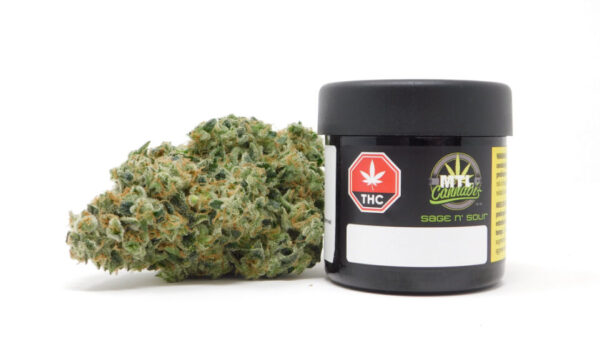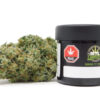Not all Quebecers are happy that people can legally buy weed — apparently not even its provincial cannabis store, which says its first quarterly profit will be spent on researching and preventing use.
On Thursday, the Société québécoise du cannabis reported its 2020–2021 fiscal year is off to a strong start, with $110.4 million in sales for the first quarter ended June 20. Sales were $45.1 million in the first quarter of the previous fiscal year.
Net income was reported at $9.7 million, compared to $1.3 million in the same quarter last year.
“The entire amount will be remitted to the government and reinvested primarily in cannabis research and prevention,” the retailer — which retains a monopoly over weed sales in the province — said in a statement. This policy isn’t new, however, from the province who’s said the goal of sanctioned sales is “to bring users into the legal cannabis market and to keep them there without actually encouraging cannabis use.”
Read more: Fighting for the right to grow your own
By law, all of the SQDC’s profits are handed over to the government-run Cannabis Prevention and Research Fund. Attitudes in Quebec have been notably frostier towards cannabis than the rest of the country, where other provincial retailers have struggled to make money.
The British Columbia Liquor Distribution Branch, which allows private retail, reported cannabis sales of only $135.9 million in its first year. The Ontario Cannabis Store, which has changed its initial policies to allow for more privatization, lost $42 million in its first year.
New Brunswick’s retail monopoly, which had planned to sell off its system because its books were so bad, has since turned around and posted profitable quarters this year.
Read more: Cannabis NB reports second consecutive profitable quarter
In its 2019 year-end results, the SQDC reported comprehensive income of $0 with a $4.9 million loss. Net expenses totalled $18.1 million and include non-recurring start-up costs of around $4.9 million. Excluding these costs, the retailer said net expenses would have been $13.2 million and would have ended its fiscal year with a balance of $0. Government revenues from consumption and excise tax totalled around $29.7 million.
This year, the SQDC says its impressive growth is largely related to its retail deployment plan, with 42 stores operating as of June 20 versus 16 on the same date last year. Despite Covid-19, the provincial company remains confident it can reach objectives, which mostly involve adding more shops.
While adhering to its mission to sell weed without encouraging its use, the SQDC estimates it “has acquired more than 40 per cent of the illegal market, based on an estimated total annual consumption of 150 metric tonnes for Quebec.”
Starting in mid-July, the SQDC offers same-day delivery on the Island of Montreal for purchases made on the its website. The company says it has plans to expand coverage to other high density areas.
Covid-19 has led to less transactions but an increase in average in-store shopping carts, which the SQDC says may be due to customers visiting stores less frequently during the pandemic. Because of a mandatory construction shutdown, the company says it only opened one new store instead of five that were originally planned.
Other highlights include:
- 18,922 kilograms of cannabis sold legally during the quarter;
- the store network sold 16,131 kilograms of cannabis, with sales totalling $94.6 million;
- around 2 million transactions took place;
- online sales reached 2,791 kilograms and a total of $15.8 million — some 190,000 transactions were involved;
- net expenses totalled $16.4 million or 14.9 per cent of sales;
- and government revenues from operations in the form of consumer taxes and excise duties, collected from producers, totalled around $37.8 million.
Top image Creative Commons
nick@mugglehead.com
@nick_laba














